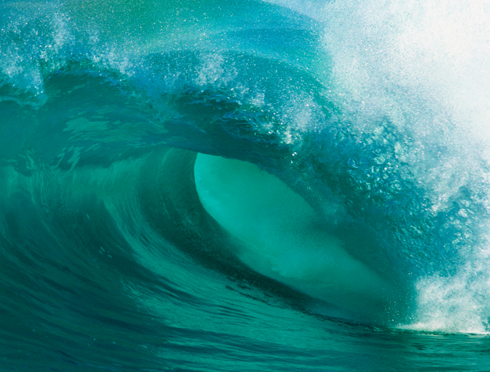 Abengoa
Abengoa
Annual Report 2011
- Corporate Social Responsibility
- Innovation, our tool
- Innovation as a competitive edge
Abengoa occupies a position of international leadership in a significant number of key areas of the “green economy”, where the company upholds an ongoing commitment through its innovation policy and strategy to promoting sustainable use of resources and raw materials spanning their entire lifecycle. Abengoa focuses its push towards innovation on renewable energies. Sources with low environmental impact and higher energy efficiency provide the basis for driving forward and implementing these technologies. This technological development leads to a reduction in greenhouse gas emissions and less reliance on fossil energy sources.
In order to meet the challenges the company takes on, Abengoa has set up research facilities in a variety of places around the world, including, among others, Seville and Madrid in Spain; Denver and New York in the USA; Arnhem in Holland; Duisburg in Germany; and Montevideo in Uruguay.

Abengoa also leads alliances with international partners with the aim of developing competitive proprietary technology in the field of renewable energies by adopting an “innovation ecosystem”, meaning a system through which to foster collaboration among universities, government agencies, public research institutes, technology centers and businesses in order to create knowledge networks. These institutions include: the aerospace center, DLR (Deutschen Zentrums für Luft- und Raumfahrt) and the Fraunhoufer ISE in Germany, the National Renewable Energy Laboratory (NREL) in the USA, the Commonwealth Scientific and Industrial Research Organisation (CSIRO) in Australia, the Centre National de la Recherche Scientifique (CNRS) in France, the Consejo Superior de Investigaciones Científicas (CSIC) and theCentro de Investigaciones Energéticas, Medioambientales y Tecnológicas (CIEMAT) in Spain, in addition to highly prestigious national and international universities, such as the University of Rochester and the University of California Merced in the USA.
Key areas of activity
Abengoa has been working on electrical power generation based on substituting fossil fuels for solar energy and on developing energy storage technologies.
In the area of biofuels, company activities are focused on the development of technologies for producing biofuels from lignocellulosic biomass, especially bioethanol via enzymatic hydrolysis and gasification and catalytic synthesis of alcohols; in addition to obtaining high added-value bio-products.
The company also provides solutions spanning the complete water cycle, centered on the development of reverse osmosis desalination technology, which enables drinking water to be obtained from sea and brackish water, as well as the development of technologies for treating wastewater for subsequent regeneration to enable reuse, thereby generating new water sources wherever water is in short supply.

Through its marine power business line, Abengoa participates in a variety of R&D projects via consortiums, noteworthy among which are the Cenit TEcoAgua project and the SOWFIA (Streamlining of Ocean Wave Farms Impact Assessment) project to harness wave energy.
Abengoa is likewise working on the development of new hydrogen production systems based on renewable sources, as well as second-generation fuel cells. The company is also involved in CO2 capture and storage programs as a way to eliminate GHG (greenhouse gas) emissions into the atmosphere.
"Committed to innovation means committed to sustainability"
© 2011 Abengoa. All rights reserved
